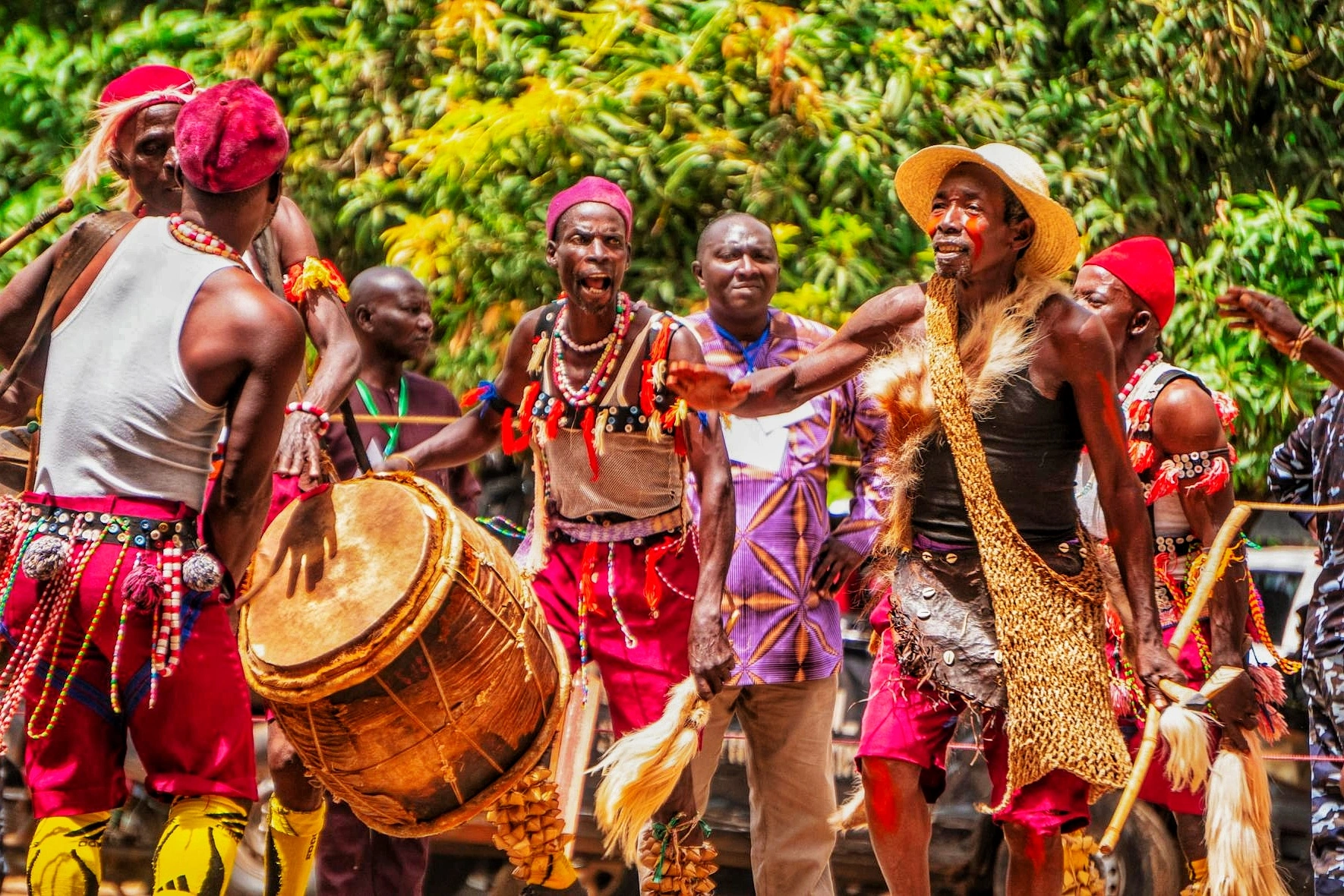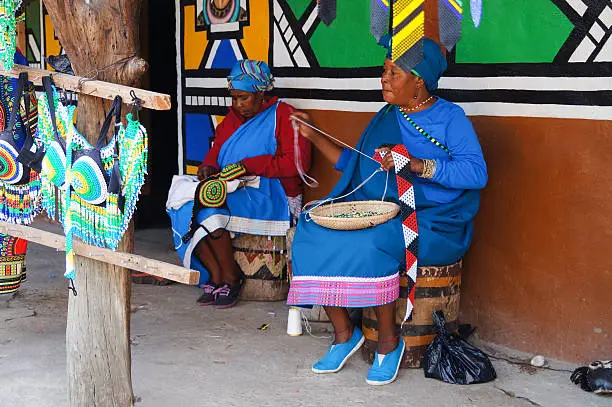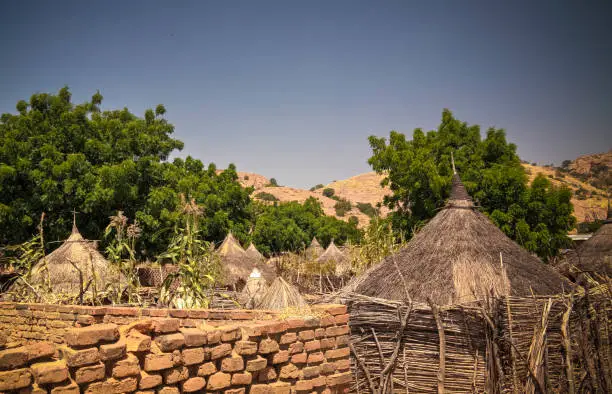
Africa is a treasure trove of rich traditions, diverse cultures, and vibrant histories, making it a dream destination for cultural explorers. From the sun-baked deserts of Namibia to the lush highlands of Kenya, the continent is home to some of the best cultural villages in Africa, each offering an authentic glimpse into its people’s daily lives, rituals, and heritage. These villages provide a rare opportunity to step back in time and immerse yourself in timeless traditions, colourful ceremonies, and ancient crafts. Whether you’re seeking to dance to the rhythms of tribal drums, savour traditional African cuisines, or learn centuries-old crafts, exploring Africa’s cultural villages promises a journey like no other.
Table of Contents
Why Cultural Villages Are a Must-Visit in Africa
Cultural villages in Africa offer immersive experiences that showcase the continent’s rich heritage and traditions. These villages are purpose-built environments designed to educate visitors about the diverse cultures, lifestyles, and histories of various African communities.
Preservation of Heritage
Cultural villages play a crucial role in preserving and promoting indigenous cultures. They serve as living museums where traditional practices, crafts, and rituals are maintained and demonstrated. This preservation is vital for safeguarding intangible cultural heritage and ensuring that future generations can learn about and appreciate their ancestral traditions.
Educational Value
Visitors to cultural villages gain firsthand insights into the daily lives of different ethnic groups. Through interactive experiences, such as participating in traditional dances, crafts, and ceremonies, tourists develop a deeper understanding and respect for the cultures they encounter. This educational aspect fosters cross-cultural appreciation and awareness.
Economic Benefits
Cultural villages contribute to local economies by creating employment opportunities and generating income through tourism. They provide platforms for artisans to sell handcrafted goods and for communities to offer services like guided tours and performances. This economic support aids in community development and poverty alleviation.
Authentic Experiences
For travellers seeking authentic cultural experiences, these villages offer a unique opportunity to engage directly with local traditions in their Indigenous settings. Unlike conventional tourist attractions, cultural villages provide genuine interactions that enrich the travel experience and create lasting memories.
Conservation of Traditional Practices
By showcasing traditional ways of life, cultural villages help in the conservation of practices that might otherwise diminish due to modernization. They act as custodians of cultural expressions, ensuring that skills like traditional craftsmanship, music, and dance are kept alive.
Promotion of Social Cohesion
These villages often represent multiple ethnic groups, promoting unity and understanding among diverse communities. They provide a space where cultural diversity is celebrated, fostering social cohesion and national identity.
In summary, visiting cultural villages in Africa offers invaluable insights into the continent’s rich cultural tapestry. They are essential for heritage preservation, education, economic development, and the promotion of authentic cultural experiences.
Exploring the Best Cultural Villages in South Africa
South Africa boasts a rich tapestry of cultures, and its cultural villages offer immersive experiences into the traditions and lifestyles of its diverse communities. Here are some of the most notable cultural villages to explore:

1. Lesedi Cultural Village, Gauteng
Located within the Cradle of Humankind, Lesedi Cultural Village provides insights into the traditional homesteads and customs of various South African tribes, including the Zulu, Xhosa, Pedi, Basotho, and Ndebele. Visitors can engage in traditional dances and songs and savour authentic African cuisine.
2. Shakaland Zulu Cultural Village, KwaZulu-Natal
Situated in the heart of Zululand, Shakaland offers an authentic experience of Zulu culture. Visitors can learn about traditional Zulu customs, watch spear-making demonstrations, enjoy energetic dance performances, and consult with a sangoma (traditional healer).
3. Basotho Cultural Village, Free State
Nestled within the Golden Gate Highlands National Park, this village showcases the lifestyle of the South Sotho people from the 16th century to the present. Guests can explore replica homesteads, enjoy traditional music, and sample Sotho cuisine, gaining a deep understanding of Basotho heritage.
4. Shangana Cultural Village, Mpumalanga
Located between the Blyde River Canyon and the southern Kruger National Park, Shangana Cultural Village celebrates the traditions of the Shangaan people. Visitors can tour traditional villages, witness craft demonstrations, and participate in evening festivals featuring dance and storytelling.
5. !Khwa ttu San Education and Culture Education Centre, Western Cape
This centre offers an enlightening journey into the world of the San people, one of Africa’s oldest indigenous groups. Visitors can learn about San history and tracking skills and experience guided tours led by San guides, providing a unique perspective on their way of life.
6. Khaya La Bantu Cultural Village, Eastern Cape
Situated in Mooiplaas, Khaya La Bantu offers an authentic insight into Xhosa hospitality, art, craft, and culture. Visitors can experience traditional music, locally brewed beer, and a traditional Xhosa meal, immersing themselves in the vibrant Xhosa culture.
Exploring these cultural villages provides a profound appreciation of South Africa’s diverse heritage, allowing visitors to connect with the country’s rich cultural mosaic.
Unique Traditions in East Africa’s Cultural Villages
East Africa is a region rich in cultural diversity, with numerous cultural villages that offer immersive experiences into the unique traditions of its indigenous communities. Here are some notable cultural villages and the traditions they preserve:
1. Maasai Cultural Villages (Kenya and Tanzania)
The Maasai are renowned for their distinctive customs and attire. In these villages, visitors can witness the Adumu, or “jumping dance,” where young warriors (Morans) display their prowess by leaping into the air. This dance is a rite of passage and a demonstration of strength and agility. Additionally, the Maasai’s intricate beadwork, characterised by vibrant colours and patterns, holds significant cultural symbolism and is an integral part of their identity.
2. Ngorongoro Cultural Boma (Tanzania)
Situated near the Ngorongoro Crater, this cultural boma offers insights into the traditions of the Iraqi people. Visitors can learn about their unique housing structures, which are built underground to protect against past invasions and wild animals. The Iraqw are also known for their traditional music and dance, which play a vital role in their ceremonies and storytelling.
3. Batwa Cultural Experience (Uganda)
The Batwa, also known as the “Pygmies” of Uganda, are indigenous forest dwellers with a rich cultural heritage. Through the Batwa Cultural Experience, visitors can explore their traditional hunting and gathering techniques, hear ancient legends, and understand their deep connection to the Bwindi Forest. This experience provides a glimpse into the Batwa’s sustainable way of life and their intimate knowledge of the forest ecosystem.
4. Lamu Cultural Festivals (Kenya)
Lamu Island, a UNESCO World Heritage site, hosts annual cultural festivals that celebrate Swahili heritage. Events include traditional dhow sailing races, donkey races, and performances of Swahili music and poetry. These festivals are a vibrant display of the island’s rich history and the Swahili people’s maritime culture.
5. Hadzabe Cultural Tours (Tanzania)

The Hadzabe are among Africa’s last hunter-gatherer tribes. Visitors can experience their click-language communication, learn about their utilisation of local flora for medical purposes, and go hunting with them on cultural trips. This interaction provides a rare insight into a lifestyle that has remained largely unchanged for thousands of years.
Exploring these cultural villages offers travellers an authentic understanding of East Africa’s diverse traditions and the opportunity to engage meaningfully with its Indigenous communities.
West Africa’s Vibrant Villages: A Cultural Immersion
West Africa‘s cultural villages offer immersive experiences that showcase the region’s rich traditions, vibrant arts, and communal lifestyles. Here are some notable villages and their unique cultural practices:
1. Ganvié Village, Benin
Often referred to as the “Venice of Africa,” Ganvié is a stilt village situated on Lake Nokoué. The Tofinu people established this village to escape slave traders, building their homes on stilts to navigate the lake’s waters. Visitors can explore the village by boat, observing traditional fishing methods and the unique architecture of the stilted homes.
2. Koro Village, Mali
Koro is a traditional Dogon village located in the Bandiagara Escarpment. The Dogon people are renowned for their intricate mask dances, which are performed during significant ceremonies. These dances, accompanied by rhythmic drumming, are integral to the Dogon’s spiritual and cultural expressions.
3. Ouidah, Benin
Ouidah is a historic town known for its significant role in the transatlantic slave trade and its vibrant voodoo culture. Visitors can explore the Temple of Pythons, the Sacred Forest, and the annual Voodoo Festival, which features colourful ceremonies, music, and dance, reflecting the deep spiritual traditions of the region.
4. Bobo-Dioulasso, Burkina Faso
As the cultural capital of Burkina Faso, Bobo-Dioulasso is home to the Bobo people, known for their traditional music and dance. The city hosts the annual Festival of Traditional Music, where visitors can experience performances of balafon, djembe, and other traditional instruments, offering a deep dive into the musical heritage of West Africa.
5. Somba Villages, Togo and Benin

The Somba people, also known as Tamberma, inhabit fortified villages characterized by unique mud-brick architecture. These structures, known as Tata Somba, are designed to protect inhabitants from invaders and wild animals. Visitors can explore these villages to learn about the Somba’s traditional way of life and their architectural ingenuity.
Exploring these villages provides a profound understanding of West Africa’s diverse cultures, offering firsthand experiences of traditions that have been preserved through generations.
Preserving Heritage: The Role of Cultural Villages in Africa
Cultural villages in Africa play a pivotal role in preserving and promoting the continent’s rich heritage. These villages serve as living museums, offering immersive experiences that showcase traditional lifestyles, crafts, and rituals. By engaging visitors, they foster a deeper understanding and appreciation of African cultures.
Educational Platforms
Cultural villages act as educational hubs, providing both locals and visitors with insights into indigenous knowledge systems, traditional arts, and historical narratives. Through workshops, demonstrations, and storytelling sessions, they impart valuable cultural wisdom, ensuring its transmission to future generations.
Economic Support
By attracting tourism, cultural villages generate income that supports the local economy. This economic benefit enables communities to invest in preserving their cultural heritage and improving their living standards.
Community Empowerment
Involving local communities in the management and operation of cultural villages empowers them to take ownership of their heritage. This involvement fosters a sense of pride and responsibility, leading to more sustainable preservation efforts.
Challenges and Considerations
While cultural villages are instrumental in heritage preservation, it is essential to balance authenticity with commercialization. Over-commercialization can lead to the commodification of culture, potentially diluting its significance. Therefore, it is crucial to approach cultural tourism with sensitivity and respect for the traditions being showcased.
In summary, cultural villages are vital in safeguarding Africa’s diverse heritage. They serve as educational platforms, economic drivers, and community empowerment tools, all while highlighting the importance of responsible and respectful cultural tourism.
Tips for Visiting Cultural Villages in Africa
Visiting cultural villages in Africa offers a unique opportunity to immerse oneself in the continent’s rich traditions and lifestyles. To ensure a respectful and enriching experience, consider the following guidelines:
1. Engage Respectfully with Local Communities
- Seek Permission for Photography: Always ask for consent before taking photographs of individuals or their property. Many villagers are proud of their culture and are open to sharing it through photos, but it’s courteous to ask first.
- Participate in Activities: Engage in traditional crafts, music, or dance sessions. This active participation fosters mutual respect and provides a deeper understanding of the culture.
2. Be Mindful of Cultural Sensitivities
- Understand Local Customs: Before visiting, familiarize yourself with the community’s traditions and taboos. This knowledge helps in avoiding unintentional disrespect.
- Dress Modestly: Adhering to local dress codes shows respect for the community’s values. In many African villages, modest attire is appreciated.
3. Support the Community Economically
- Purchase Authentic Handicrafts: Buying locally made crafts supports artisans and provides you with unique souvenirs. Ensure that the items are handcrafted and not mass-produced.
- Use Local Services: Opt for village-run accommodations, guides, and transportation to contribute directly to the community’s economy.
4. Practice Responsible Tourism
- Respect Privacy: While cultural villages are open to visitors, always be considerate of personal spaces and private moments.
- Avoid Disrupting Daily Life: Be mindful of the community’s routines and avoid activities that may interfere with their daily tasks.
5. Prepare for the Visit
- Plan Ahead: Research the village’s history, customs, and any specific guidelines for visitors. This preparation enhances your experience and shows respect for the community.
- Stay Open-Minded: Approach the visit with curiosity and a willingness to learn, embracing the opportunity to experience a way of life different from your own.
By adhering to these guidelines, you can ensure that your visit to Africa’s cultural villages is both respectful and rewarding, fostering meaningful connections and a deeper appreciation of the continent’s diverse heritage.
FAQ
1. What are cultural villages in Africa?
Cultural villages in Africa are communities where traditional customs, rituals, crafts, and lifestyles are preserved and practised. These villages offer visitors an authentic experience of African culture, providing insights into the everyday lives of indigenous people, including their arts, dances, and ceremonies.
2. Why should I visit cultural villages in Africa?
Visiting cultural villages in Africa allows travellers to engage directly with local traditions, enhancing their understanding and appreciation of African heritage. It’s a unique opportunity to experience indigenous cultures, learn about ancient crafts, and participate in traditional rituals, making for a deeply immersive and educational travel experience.
3. How do cultural villages help preserve African heritage?
Cultural villages act as custodians of African traditions by providing a space for the preservation of customs, languages, and practices that may otherwise be at risk of fading. Through cultural tourism, these villages generate income and awareness, ensuring that indigenous knowledge and heritage continue to be passed on to future generations.
4. What can I expect when visiting cultural villages?
When visiting cultural villages, you can expect to participate in or observe traditional dances, crafts, music, cooking demonstrations, and rituals. You’ll also have the chance to interact with local people, learn about their way of life, and enjoy authentic African food and beverages. Each village offers something unique, reflecting the diversity of Africa’s cultures.
5. Are cultural villages safe for tourists?
Yes, most cultural villages in Africa are safe for tourists, though it’s important to research the village you’re planning to visit. Be sure to follow any guidelines provided by local authorities and respect local customs to ensure a positive experience. Travelling with a reputable guide is also recommended for added safety and convenience.
Conclusion
Africa’s cultural villages are much more than just tourist attractions; they are living treasures of the continent’s diverse heritage. By visiting these villages, you not only gain a deeper understanding of Africa’s rich traditions and histories but also contribute to the preservation of these practices for future generations. Whether you’re exploring the vibrant cultures of South Africa, experiencing the unique traditions of East Africa, or immersing yourself in the lively customs of West Africa, each cultural village offers an unforgettable journey into the heart of African life. By following responsible tourism practices and engaging with local communities, your experience can be both enriching and respectful, ensuring that these cultural gems continue to thrive for years to come.
